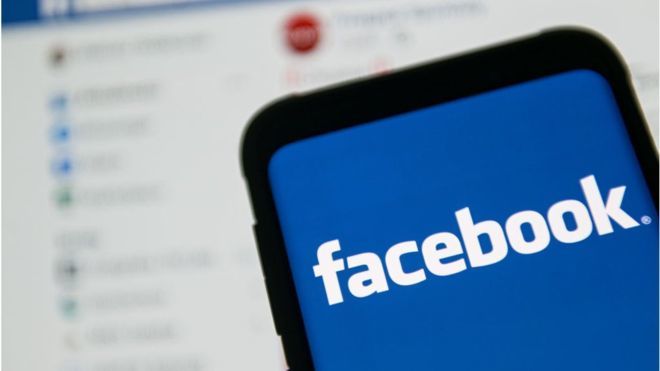 |
| Image copyright SOPA Images |
In a piece written for USA Today newspaper, he also says he hopes to help four million Americans sign up as new voters.
Facebook has faced heavy criticism for allowing adverts from politicians that contain false information.
Rival social platform Twitter banned political advertising last October.
“For those of you who’ve already made up your minds and just want the election to be over, we hear you -- so we’re also introducing the ability to turn off seeing political ads,” Mr Zuckerberg wrote.
Facebook and its subsidiary Instagram will give users the option to turn off political adverts when they appear or they can block them using the settings features.
Users that have blocked political adverts will also be able to report them if they continue to appear.
The feature, which will start rolling out on Wednesday, allows users to turn off political, electoral and social issue adverts from candidates and other organisations that have the "Paid for" political disclaimer.
The company said it plans to make the feature available to all US users over the next few weeks and will offer it in other countries this autumn.
Mr Zuckerberg went on to encourage people who aren't signed up as voters to register in time for the US election in November.
“Voting is voice. It’s the single most powerful expression of democracy, the best way to hold our leaders accountable, and how we address many of the issues our country is grappling with."
“I believe Facebook has a responsibility not just to prevent voter suppression -- which disproportionately targets people of colour -- but to actively support well-informed voter engagement, registration, and turnout.”
As part of the initiative a new information hub, called The Voting Information Center, will be put at the top of American users’ Facebook and Instagram feeds from the beginning of July.
Information on offer will include how to register to vote and details about mail-in ballots.
The firm also said it will share reliable information from state and local election authorities.
Facebook estimates that the hub will reach 160 million Americans by the 3 November election.
Social media companies are at the centre of a political storm in the run-up to the US election.
Last month Mr Zuckerberg faced criticism for leaving up a series of posts by President Donald Trump, including one that Twitter labelled as containing misleading information about mail-in ballots.
It was the first time that Twitter had flagged the US president's tweets.
Also in May, Mr Trump signed an executive order aimed at removing some of the legal protections given to social media platforms.
It came as Mr Trump continued to accuse companies such as Twitter and Facebook of stifling conservative voices. BBC